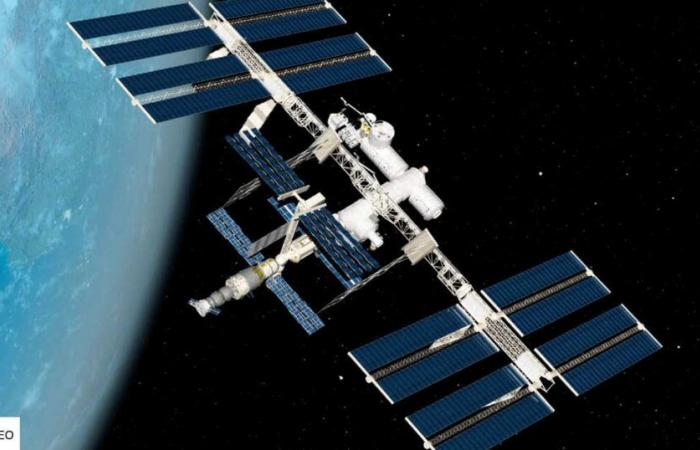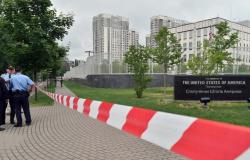How do you make people understand the importance of a leak when those primarily responsible have already almost left the ship? This dilemma is that of the member countries of the international crew of the International Space Station (ISS). Since 2019, leaks have been identified at the Zvezda module, owned by Russia. Although work is regularly carried out to ensure sufficient pressure and oxygen levels for the people on board, the problem is now becoming critical.
Never since the launch of the project has such a risk hovered over the space laboratory shared by the American, Russian, European, Japanese and Canadian space agencies. As CNN points out, a report from NASA’s inspector general identifies leaks from the Russian module as the ISS’s most pressing problem.
A year in space: life aboard the ISS
US raises possibility of ‘catastrophic disintegration’
Now, NASA is talking about “concerns about the structural integrity of the module and the possibility of catastrophic failure”. But on the Russian side, if Roscosmos did ask its astronauts for repairs, the Russian team “don’t think catastrophic disintegration is realistic”reported Bob Cabana, former astronaut and chairman of the ISS advisory committee for NASA.
However, air and pressure losses have reached new worrying heights this year. But the American and Russian entities face a dilemma. “The Russians think it’s safe to continue operations, but they can’t prove it to our satisfaction. The United States thinks it’s not safe, but we can’t prove it to the Russians’ satisfaction.”summarizes Bob Cabana.
For the moment, precautionary measures are being taken by the astronauts present on the ISS. They must imperatively seal the part containing the leaks. But it must be regularly reopened since it forms the link between the Station and the docking port from which the freight and supplies essential to the survival of passengers come.
During these critical moments, American astronaut Michael Barratt explained at a press conference that the hatch separating the Russian and American parts of the station is closed. According to him, this is an agreement of good intelligence but far from comfortable.
An “extremely fruitful” meeting held in September on Russian soil
If the United States is pushing for independent assessments, carried out both by experts appointed by NASA and Roscosmos, Russia seems to be delaying the deadline. A meeting reportedly took place in Russia in September on the subject and was reportedly “extremely successful”according to Bob Cabana.
However, the two parties do not agree on the causes of the leak. Above all, a second is added to this debate. Because if the two countries agree on the possibility of a definitive closure of the module in the event that the leak reaches an “untenable” level, they argue over the definition of this term and the characteristics that it presumes. .
Also, this standoff comes as Russia wishes to disengage from the ISS program in order to build its own space station and conduct its experiments alone. Russia has not committed to continuing operation of the ISS beyond 2028. Their response is expected to come next year.
However, the future of the joint station is already sealed. A reintroduction into the atmosphere is planned for 2030, resulting in a crash in the middle of the ocean. This will be the riskiest operation ever attempted by NASA. This latest mission, entrusted to SpaceX, will mark the end of a collaboration that began in 1998.






